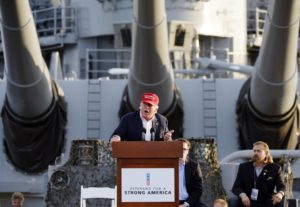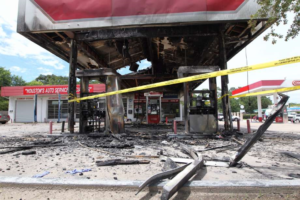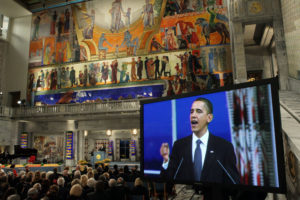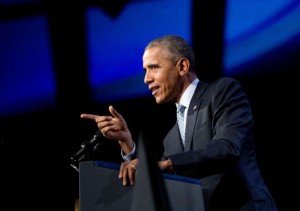Donald J. Trump’s insult-fueled rise to the Republican Party’s presidential nomination makes observers like me torn as to which one of the insults causes the most disgust.
I’ll comment today on the invective he has hurled at our military establishment.
Trump continually calls our military a “disaster.” He laments what he calls a failed foreign policy and the allegation that “we don’t win anymore.”
Two points need attention.
One of them is that Trump has no military service in his record. He doesn’t have any real understanding of military life, of military chain of command, of the stresses associated with serving during a time of war, let alone in a war zone.
To be fair, Barack Obama has no military experience, either. Nor does Hillary Rodham Clinton, the current Democratic Party presidential nominee. Then again, they have nothing but high praise for the men and women who serve in our military.
That this kind of criticism would fly out of the mouth of someone who sought multiple deferments during the Vietnam War disgusts me in the extreme.
The second point of contention is that I have several members of my family who’ve served in the military during the past two decades. A young cousin served in the Navy; another first cousin of mine is currently serving in the Army — and has gone through several deployments to Iraq and Afghanistan; a young nephew of mine saw heavy combat during one of his two tours in Iraq while he served with an Army armored unit that breached the Iraqi frontier at the beginning of the Iraq War in March 2003; and another nephew is currently serving in the U.S. Air Force.
They all have served — right along with their fellow servicemen and women — with honor.
I resent highly any inference from a presidential candidate that their service has been a “disaster.”
And yet this clown’s insults fly over the heads of supporters who hear him utter them, and which — in my view — defame the very men and women he seeks to lead as their commander in chief.
Go figure.



